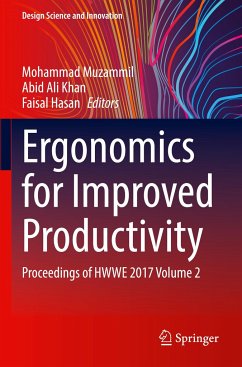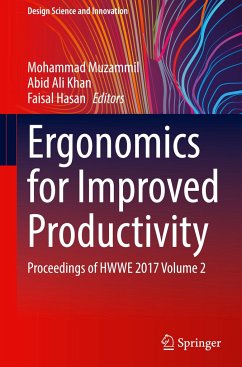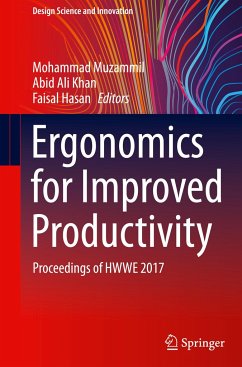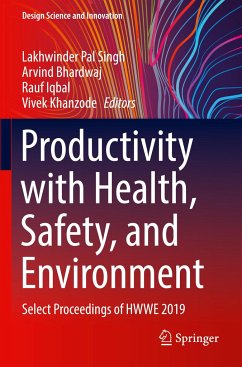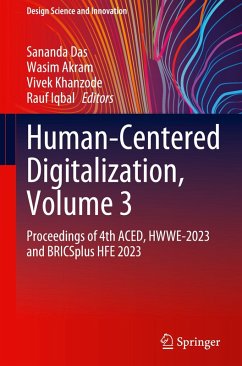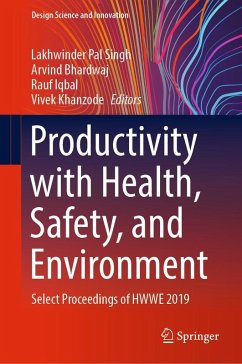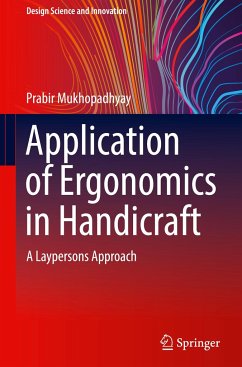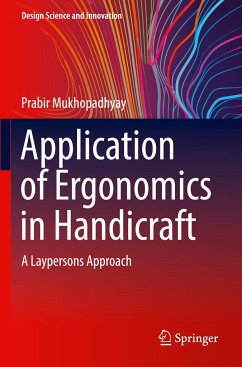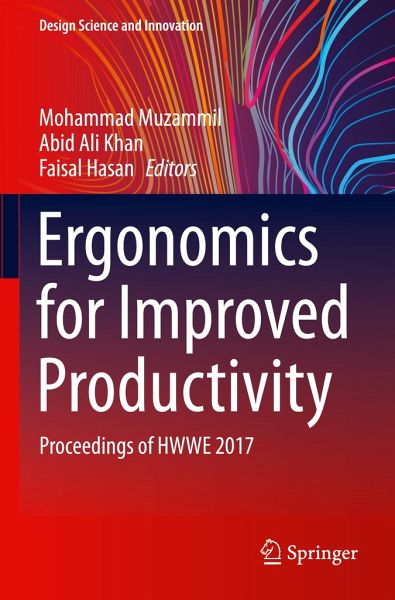
Ergonomics for Improved Productivity
Proceedings of HWWE 2017
Herausgegeben: Muzammil, Mohammad; Khan, Abid Ali; Hasan, Faisal
Versandkostenfrei!
Versandfertig in 6-10 Tagen
151,99 €
inkl. MwSt.

PAYBACK Punkte
76 °P sammeln!
This highly informative and carefully presented book focuses on the fields of ergonomics/human factors and discusses the future of the community vis-à-vis health problems, productivity, aging, etc. Ergonomic intercession must be seen in light of its effect on productivity because ergonomic solutions will improve productivity as the reduction of environmental stressors, awkward postures and efforts lead to a reduction in task execution time. The book provides promising evidence that the field of ergonomics continues to thrive and develop deeper insights into how work environments, products and...
This highly informative and carefully presented book focuses on the fields of ergonomics/human factors and discusses the future of the community vis-à-vis health problems, productivity, aging, etc. Ergonomic intercession must be seen in light of its effect on productivity because ergonomic solutions will improve productivity as the reduction of environmental stressors, awkward postures and efforts lead to a reduction in task execution time. The book provides promising evidence that the field of ergonomics continues to thrive and develop deeper insights into how work environments, products and systems can be developed to meet needs, demands and limitations of humans and how they can support productivity improvements. Some of the themes covered are anthropometry and workplace design, biomechanics and modelling in ergonomics, cognitive and environmental ergonomics, ergonomic intervention and productivity, ergonomics in transport, mining, agriculture andforestry, health systems, work physiology and sports ergonomics, etc. This book is beneficial to academicians, policymakers and the industry alike.





